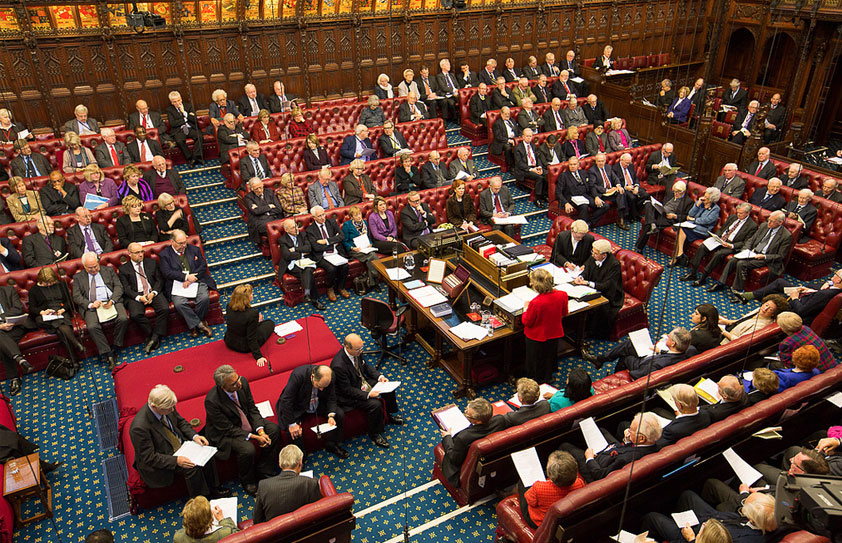- January 30, 2018
- Posted by: lutherpendragon
- Category: insight

The Government’s EU Withdrawal Bill embarks on its journey through the House of Lords today where it is expected to receive a rough ride as peers start to scrutinize and almost certainly amend what the Government wants, in the weeks ahead.
The Bill will certainly throw a spotlight on the upper chamber, but the House of Lords often gets less attention and can sometimes be forgotten as a place where significant public affairs wins can achieved. I’ve often found it to be a place to find expert champions for a wide variety of causes, where organisations and their issues can get a hearing on the floor of the Chamber as well as a place which plays a crucial role in the development and improvement of legislation.
So as peers become the focus of attention over the next few weeks, here’s a few areas to think about in working with the Lords to deliver a successful public affairs strategy:
1. Membership of the Lords – over 800 peers – is made up of a wide array of experts in pretty much every field ranging from industry to academia, doctors, lawyers, diplomats and general.
These peers can not only bring their extensive knowledge, experience and networks to a campaign but can importantly give it real gravitas and credibility, to ensure it is listened to. So if you’re working on something quite niche or technical which needs to build political support, the Lords could be a good place to start finding those champions.
2. The political balance in the Lords is completely different.
The Government is outnumbered and smaller parties such as the Lib Dems have more influence thanks to having over 100 seats. Consensus and coalition building is a key element of successful working. But the very nature of the Lords lends itself to this approach, most peers are far less party political and will work with colleagues from across the House to highlight an issue and raise awareness. Starting with a coalition in the Lords may well help to garner further support from MPs and wider stakeholders, which will ultimately have a greater impact on Ministers.
3. The different working pattern of the Lords, means that peers have the necessary time to discuss and bring a wider range of issues to the attention of the chamber through debates.
Most days the House is sitting, peers have the opportunity to table debates lasting a couple of hours on a wide range of topics, as well as extended questioning sessions to debate directly with Ministers, on top of their normal schedule of legislation. The business of the House is available weeks in advance and the Lords Whips website is a very useful tool to see who’s expressed an interest in speaking in those debates, providing considerable notice time to contact them and brief them.
4. A key function of the Lords is to provide close scrutiny of what the Government and the Commons is up to.
Peers have much more freedom to table amendments to legislation than their counterparts in the Commons who are often beholden to the Whips. Tabling these ‘probing amendments’ can test out ministerial thinking and can often secure significant compromises and pledges which are just as binding as if made in the Commons. Submitting evidence to Lords Select Committees is also crucial. They get as much access to Ministers as their Commons counterparts and in many of the most pressing political issues, most recently and notably Brexit, they have been able to quickly put together highly detailed and authoritative reports on issues ranging from fisheries to financial services. I suspect that many of these reports have become compulsory reading for ministers and their officials.
5. Peers can secure high profile victories despite the fact that the Commons has ultimate primacy.
Of course they have the ability to amend, slow down and even block forms of secondary legislation, but perhaps even more importantly they can often set the political tone and change Government thinking. Just think about Lord Dubs’ amendment regarding child refugees from Syria as one example, and the EU Withdrawal Bill is likely to bring more.
